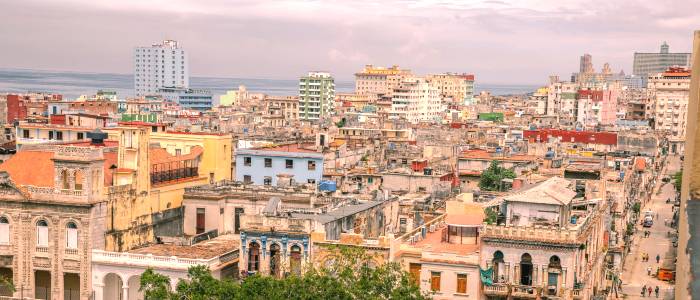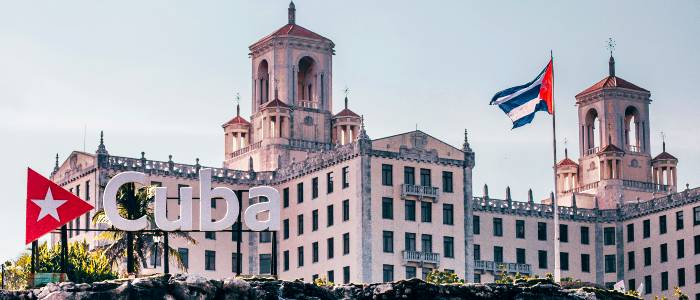
While making your travel plans, you may be considering whether it’s safe to visit Cuba in 2026.
Cuba is considered to be a safe place for foreign tourists. Nonetheless, you should follow the latest advice for travelers to ensure you enjoy a relaxed trip.
In this post, you can find practical tips for a safe visit to Cuba, including guidance for solo and LGBTQ+ travelers, and information on the island’s reputation as a tourist destination.
Safety Tips for travelers in Cuba
Cuba attracts many travelers from all over the world, thanks to its reputation as a unique destination in the Caribbean.
The island nation has some of the lowest crime rates in the Western Hemisphere. Major cities and popular resorts have an active police presence that contributes to overall safety and the wellbeing of locals and tourists alike.
To make sure you have a safe stay in Cuba, you’re recommended to follow these general tips for visitors:
- When going out in the evenings, stay in well-populated areas.
- Keep your valuables safe in a secure bag or interior pocket.
- Make copies of your essential documents, like passport or insurance information, in case they are lost.
- Stay up-to-date with local news during your stay, for advice on weather patterns or key events.
Transport safety in Cuba
Larger Cuban cities have regular bus services, but for ease, you’re advised to take a taxi if you need transport.
Official registered taxis are yellow. Most do not use a meter, so you should agree on the fare before you get into the car. You’ll be charged in Cuban pesos (CUP), so make sure to have change ready.
Some hotels arrange collectivo taxis, where you share the car with other tourists heading in a similar direction. Ask your accommodation provider if they provide this service.
You can also use La Nave, a taxi mobile application similar to Uber, or Cabify. It’s the only app of its type available in Cuba, and can be used to arrange transport for a pre-confirmed fee.
Are there travelers who need to be cautious in Cuba?
Cuba has long been a popular tourist destination. According to the country’s National Office of Statistics and Information (ONEI), more than a quarter of a million tourists visited the island in January 2024.
Visitors to Cuba have enjoyed its well established tourist resorts, designed to welcome foreign visitors, for many years.
Can I Solo travel in Cuba?
Many solo travelers visit Cuba every year and enjoy a safe and pleasant stay. These tips can help you make the most of your trip:
- Do your research: Check out reviews before you travel to book recommended accommodation, tours, and activities.
- Plan your route: Read about your destination and research how you’ll travel to different areas you want to visit.
- Contact a tour guide: Reserving a tour can give you confidence to enjoy different parts of Cuba with local guidance.
Cuba is considered safe for women traveling alone. It’s best to arrange tours and excursions through your accommodation provider, or registered tourist agencies, to ensure you get the best experience.
LGBTQ+ travelers visiting Cuba
Same-sex marriage and relationships are legal in Cuba, and LGBTQ+ friendly spaces, including beaches and hotels, have been opened in recent years. Havana has the island’s largest number of LGBTQ+ bars, and events.
LGBTQ+ visitors should not face discrimination in Cuba. All travelers are advised against public displays of affection in public areas, and you should note that conservative views are more prevalent in rural areas of Cuba.
Health Advice for Visitors to Cuba
If you need medical attention during your stay, healthcare services are available for tourists, particularly in larger cities like Havana, and Santiago de Cuba. Pharmacies are located in all popular tourist areas.
Health insurance requirements for Cuba
To enter Cuba, all foreign visitors must have health insurance which covers their time in the country. You may be asked to show proof of your coverage on arrival to border officials.
If you need medical care in Cuba, you might need to pay upfront for your treatment, depending on the clinic’s policies. If so, you’ll be provided with a receipt for reimbursement from your health insurer.
In other cases, you’ll be asked for your policy information, so that the healthcare facility can charge your health insurer directly.
Cuba's climate and weather safety
While Cuba can experience tropical storms, extreme weather events are rare. The island’s rainy season falls between May and October. During this time, you may experience brief, heavy rain showers, but they typically do not disrupt travel plans for visitors.


